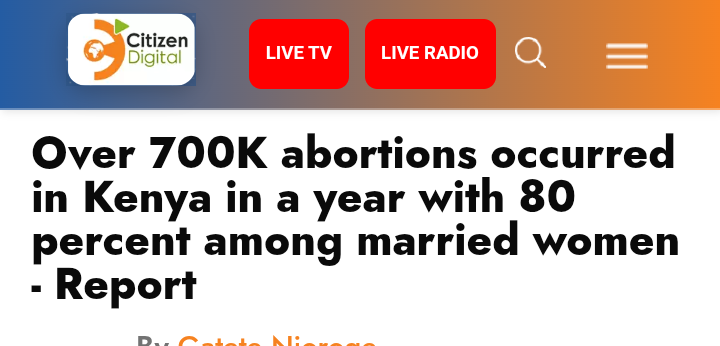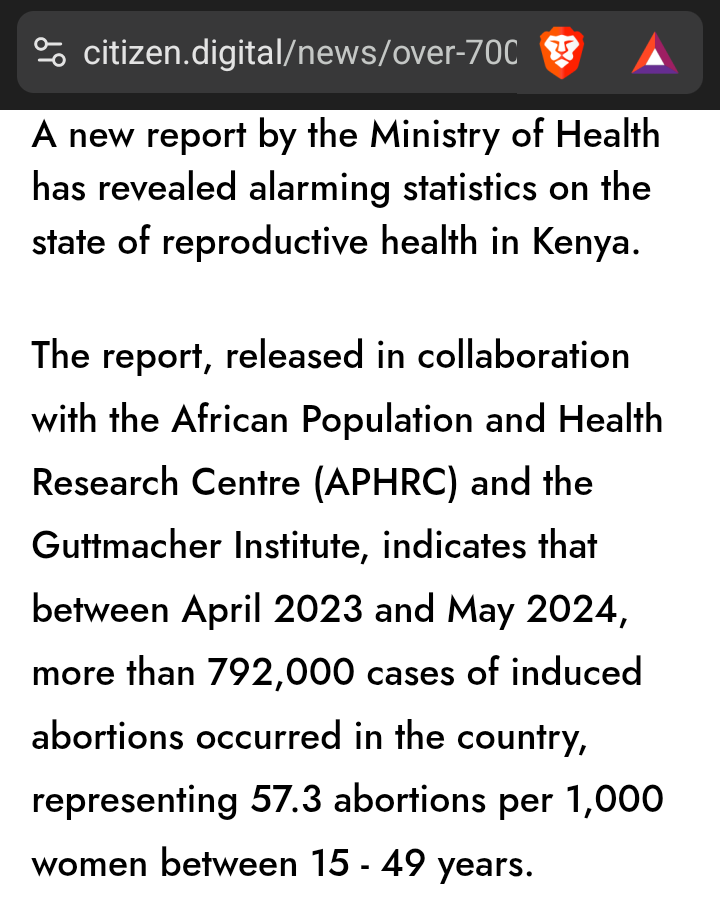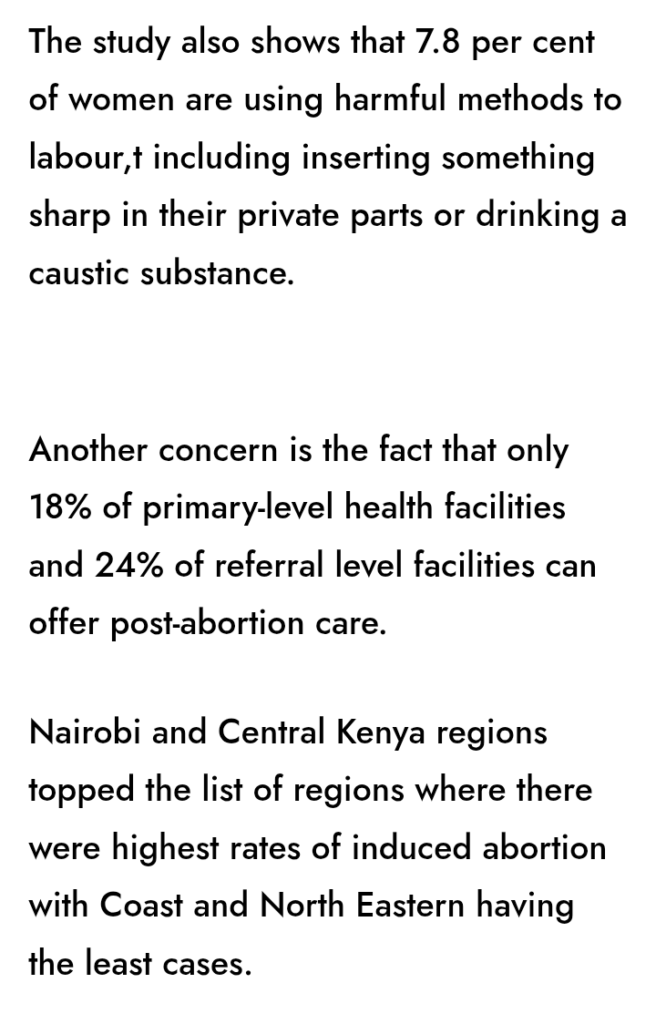A recent report by the Ministry of Health, working with the African Population and Health Research Centre and the Guttmacher Institute, has shocked many Kenyans. The report shows that over 792,000 abortions were carried out in Kenya between April 2023 and May 2024. What’s even more surprising is that 80% of these abortions involved married women or those living with their partners.
This has raised serious concerns across the country and triggered debates both online and offline. Many people are now asking how and why so many women especially those who are married are ending up in such situations.The report reveals that many of the abortions happened because of economic difficulties. Life in Kenya has become increasingly hard, and raising children has turned into a burden for many. Comments on social media show how deep this issue runs. One user said, “Life has become hard in Kenya due to the poor economy, leading people to see childbirth as a burden.” Others blamed the high cost of living, lack of jobs, and overall hopelessness. In fact, the report says that 66% of the women who had abortions were not using any contraception at the time, pointing to limited access or affordability of family planning methods.

Over 50% of unintended pregnancies ended in abortion, often because families could not afford to care for another child. But the debate does not stop with money. Morality and religion have also taken centre stage. Some Kenyans believe the numbers show a decline in faithfulness within marriages. One comment read, “This simply means married women are not faithful.” Another person wrote, “May God grant us faithful ones.”
These reactions show how deeply personal and emotional this topic is. While some blame individual behavior, others believe that the structure of marriage itself is failing many women.Other comments suggest the problem is not just about cheating or money, but also emotional struggles within homes. Some people argue that many married women are in unhappy or abusive relationships and may see abortion as their only way out.
One user posted, “It could also mean that many married women are unhappy or trapped in toxic marriages.” Another added, “Some abort to save their marriages… Usizini, Usiue,” referring to the religious command not to commit adultery or kill. These posts point to a much deeper problem: that some women are making difficult choices in silence to maintain peace in their homes.

The report also reveals how risky these abortions can be. About 7.8% of women used dangerous methods like inserting sharp objects or drinking harmful substances. This shows how desperate some women are. Unfortunately, the healthcare system is not ready to support them properly.
Only 18% of basic health centers and 24% of larger hospitals offer post-abortion care. Without proper treatment, women face serious health risks, including infections and internal injuries. This lack of care is especially worrying in high-risk areas like Nairobi and Central Kenya, where the abortion rates are highest.
Coast and North Eastern regions reported fewer abortions, possibly due to stronger cultural or religious beliefs and differences in access to healthcare services.These findings show that abortion in Kenya is not a simple issue. It’s tied to poverty, lack of access to contraception, emotional struggles in marriages, and moral views.
While some people are quick to judge, the reality is that many women are making these decisions under extreme pressure. The rising number of abortions also shows that current policies are not working. Women need better access to family planning and health services. They also need safe spaces where they can talk about their struggles without fear or shame. Instead of pointing fingers, the country needs to focus on solutions that address the root causes.

This issue is not just about numbers. It’s about real people facing difficult choices. Whether driven by poverty, relationship problems, or lack of support, each abortion represents a moment of pain and fear.
If Kenya is serious about reducing these numbers, it must start by listening to women, improving health services, and creating a society where people are not forced to choose between survival and motherhood.


